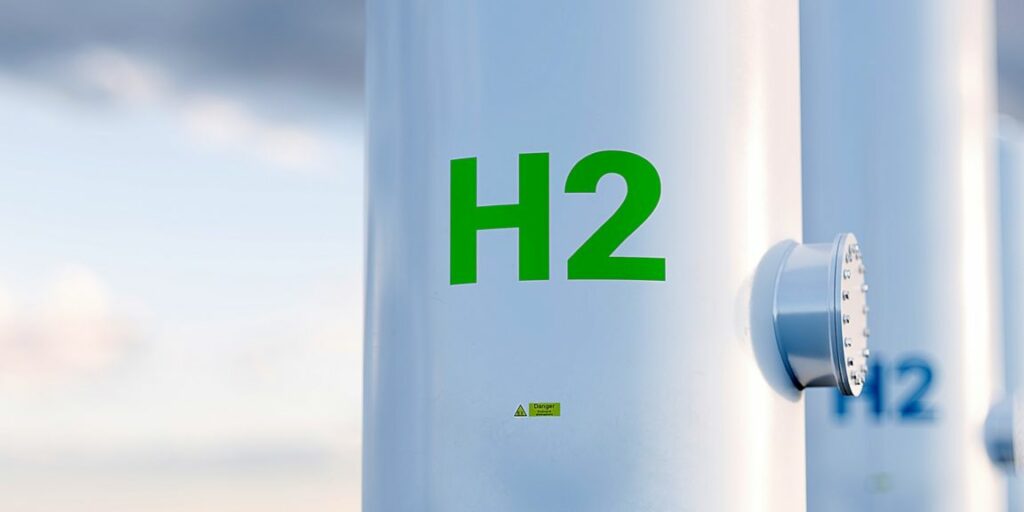Eric Worrall has fun with Germany’s latest alternative energy lurch, this time toward hydrogen. In the funhouse world of politics, everything is free because words are deeds. But, he asks, where do they plan to get the hydrogen? Why, by electrocuting water. And with what electricity? Ah, it will be generated by conventional power that is exempted from normal taxation. According to Worrall, this process will waste about 60% of the original energy in order to wax lyrical about the efficiency of the remaining 40%. Perhaps time to go back to the drawing board.
Poor hydrogen power. It’s been the fuel of the future since 1838 and never quite seems to arrive. Possibly because the problem is that you’re trying to get more energy out of a water molecule than went into creating it.
The appeal of hydrogen “fuel cells” is easy to see. If you had a sufficiently abundant and otherwise satisfactory source of power to separate the hydrogen sheep from the watery goats, you could then transport the hydrogen somewhere where local generation of power including in vehicles would produce nothing but harmless water. Which would be a plus in crowded cities. But the fundamental physics just isn’t friendly to these “fuel cells” as the basis of your power grid.
Which is a shame because alternative energy could use a break. And we don’t mean a tax break. On the contrary it would be very helpful for its proponents if it turned out some form of the stuff worked instead of being inefficient, environmentally dubious and even dangerous to human rights.
Yes, dangerous to human rights. As is beginning to be understood, the mining of elements needed for batteries for electric vehicles is conducted under conditions that, if they existed in a country like Canada, would result in a police raid, the freeing of child captives and long jail sentences for those in charge. And all for energy that doesn’t really work. At any rate solar and wind power, though they look very cool to some people, have major efficiency problems. But there is a silver lining here.
If people concerned about GHGs were willing to take a hard second look at nuclear, as some are indeed now doing, they might have the power source they need for all kinds of things including finally making hydrogen fuel cells practical by zapping water in vast quantities. Goodness knows those fuel cells, and their proponents, have waited long enough for some good news.



Hydrogen, like wind and solar, is the energy of the future - and always will be.
Actually, the use of Hydrogen is in fact the way we should go in terms of portable energy sources. Note I said portable. Ideally, we should rely on fast breeder reactors and hopefully the new Thorium/Uranium reactors to generate the energy needed to crack water and produce Hydrogen for fuel. We have stalled too long on the Kardeshev scale. We should have moved from simple chemical fuels (burning wood) and later complex chemical fuels (coal and oil) to nuclear energy. We stopped mostly because environmental activists have screeched long and loud about how nuclear energy is so bad. By stalling like this, we are putting billions of people at risk. We need a clean and stable energy source that can propel us into the future and nuclear energy is it. Hydrogen is just simply a carrier for that energy to be distributed to vehicles and places where you simply can not set up a nuclear reactor on the fly.